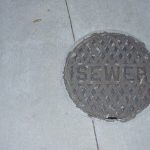A home plumbing system is complex; most of the pipes, connections and fixtures are hidden out of sight and this can make fault finding a tricky proposition. Certain problems such as a slow draining sink or clogged toilet are easier to identify. But, identifying the presence of corrosion in your pipes is much harder with no plumbing experience. In this article, we will look at the prevention of home plumbing problems in more detail.
The Most Common Plumbing Problems
Before we look at some prevention strategies, let’s take a look at some of the more common plumbing problems that people encounter. They are corroded pipes, running toilets, burst pipes, clogged drains, blocked toilets, overflowing toilets, dripping faucets, low water pressure, sewage backups and a blocked garbage disposal. Some of these problems, such as a dripping faucet or a clogged drain are easy to fix with a little know how. Other problems such as low water pressure, corroded pipes and sewage backups are harder to deal with. These more complex problems are often caused by an underlying issue that should be investigated by your local professional plumber. They have the skills, tools and experience to diagnose the cause of these problems and fix them for you.
Adopting a Proactive Mindset
The old adage “prevention is better than the cure” can be applied to many aspects of modern life and it’s very applicable when it comes to home plumbing problems. The best way to avoid an unexpected repair bill is to prevent it from occurring in the first place. This may seem impossible, but there are three proactive steps that you can take to prevent or mitigate plumber risks. They are:
1. Be Safe
Safety should always be a top priority when you’re working on your home and plumbing is no exception. Always have a flashlight handy when you check under the sink or in crawl spaces. Wear a mask to prevent the inhalation of dust and rubber gloves to protect against bacteria and mold growth. Avoid mixing cleaning products because this can create toxic gas that’s harmful to your health. Don’t use store bought drain clearing products because they contain caustic chemicals that can burn your skin and plumbing pipes.
2. Pay Close Attention When Flushing
The formation of clogs in the kitchen and bathroom sinks is exacerbated by flushing materials that are not designed to be flushed. So called “flushable wipes” don’t degrade quickly like toilet paper and they can cause toilet clogs. Pouring oil and grease in the kitchen sink can create a sticky clog that other materials will adhere to. This will cause the drain clog to grow in size until it blocks the entire pipe.
3. Schedule Regular Maintenance
The plumbing system is complex, regular maintenance can detect many potential problems before they become more serious. Generally speaking, larger problems are more expensive to fix than minor issues that are detected earlier.
If you have a clogged drain or you need to schedule some essential maintenance, contact your local plumber today.





